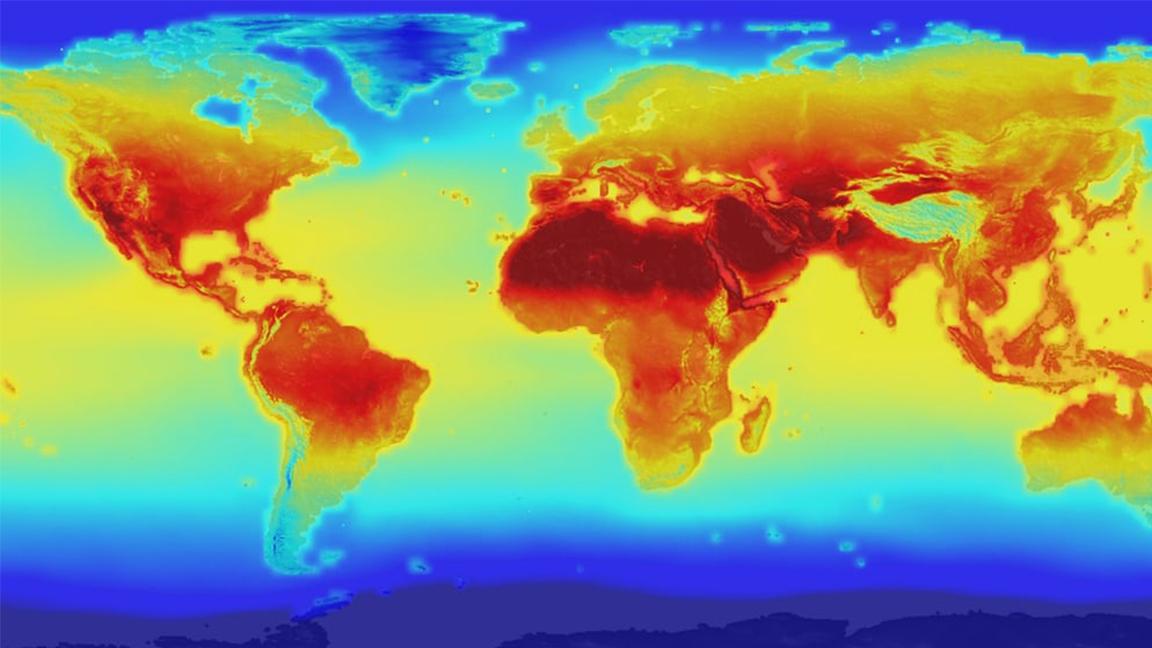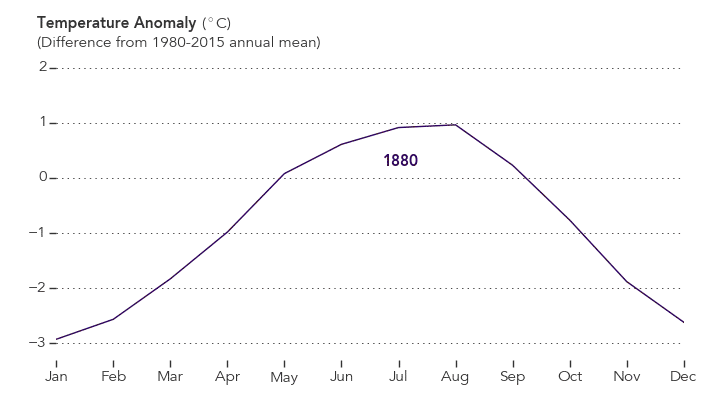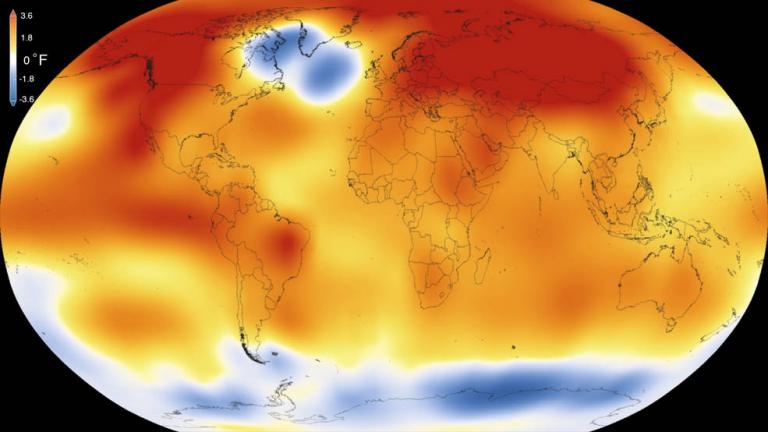 The 2016 global temperature is on track to break the annual record for the third year in a row, according to Gavin Schmidt, director of NASA’s Goddard Institute for Space Studies. (NASA)
The 2016 global temperature is on track to break the annual record for the third year in a row, according to Gavin Schmidt, director of NASA’s Goddard Institute for Space Studies. (NASA)
The average global temperature in August tied with July as the hottest month since record keeping began in 1880, according to a NASA news release published Monday.
Data released by the agency’s Goddard Institute for Space Studies shows August was the 11th consecutive month to break monthly high-temperature records, measuring 0.16 degrees Celsius (.29 degrees Fahrenheit) warmer than August 2014, previously the warmest August on record.
GISS obtains monthly global temperature data from roughly 6,300 meteorological stations and ocean-based instruments around the world as well as research stations in Antarctica.
“Monthly rankings, which vary by only a few hundredths of a degree, are inherently fragile,” GISS Director Gavin Schmidt noted in the release. He further stressed that “long-term trends are most important for understanding the ongoing changings that are affecting our planet.”
 This animation shows how the month-to-month average global temperature since 1880 has deviated from the average global temperature of the 1980-2015 time period. (Joshua Stevens / NASA Goddard Institute for Space Studies)
This animation shows how the month-to-month average global temperature since 1880 has deviated from the average global temperature of the 1980-2015 time period. (Joshua Stevens / NASA Goddard Institute for Space Studies)
Data accumulated by NASA over the past 136 years show the Earth’s temperature has been on an upward trend for the past several decades. The years 2014 and 2015 both broke records for highest annual global temperature and Schmidt predicts there’s more than a 99-percent chance that 2016 will also break that record.
The scientific community at large believes these trends are a result of global warming, the heating of the Earth caused by greenhouse gases in the atmosphere like carbon dioxide that trap the sun’s radiation.
“Global surface temperatures are just part of the picture,” said Dawn Stover, who covers climate change as a contributing editor and columnist for the Chicago-based academic journal Bulletin of the Atomic Scientists. “The oceans are absorbing so much excess heat released into the atmosphere by burning fossil fuels.
“Look at the arctic sea ice that’s reaching a low point every year,” she added. “That’s disappearing enough for ships to go through places that used to be ice-covered.”
The upward temperature trend continues even as other factors that could warm the Earth diminish, according to NASA. El Niño, a weather pattern that results in warmer ocean temperatures, faded away by June 2016.
Follow Evan Garcia on Twitter: @EvanRGarcia
Related stories:
 Is Climate Change Killing the Maple Syrup Industry?
Is Climate Change Killing the Maple Syrup Industry?
Feb. 22: There are signs that climate change is having negative effects on maple syrup production. Researchers are now surveying maple trees in the Midwest to look for them.
 Doomsday Clock Remains 3 Minutes to Midnight
Doomsday Clock Remains 3 Minutes to Midnight
Jan. 28: It’s 2016 and we’re still three metaphorical minutes away from global doom. The Bulletin of the Atomic Scientists say global warming and nuclear weapon proliferation pose serious threats to mankind.
 2015 Was the Hottest Recorded Year on Earth
2015 Was the Hottest Recorded Year on Earth
Jan. 20: New reports show that Earth’s surface temperature last year was its highest since modern temperature record keeping began in 1880. The global record was also broken in 2014, although 2015 saw dramatic increases by comparison.








